20. Pet Sematary (1989)
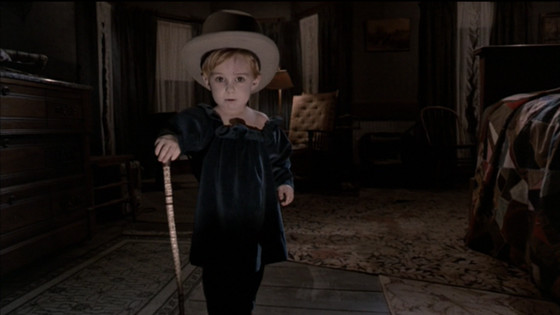
The novel here is one of the best things King has written. It is just so dark and sad and unflinching in its dedication to its premise. His writing is so on point here in that special way only he can do. When he uses his fears and wrings a story out of them, there’s usually something special to come from it. Here, his fears of mortality and the constant fear a parent has for the safety of their child and the length’s they’ll go to protect them congeals into such a perfect package.
The movie doesn’t work in the same way. It does the thing that is a bit of a curse with these adaptations and stays too faithful to the book. But it also flies through the book too quickly so things don’t build naturally. Nothing really has weight to it the same way the book does.
It also has a bit of a casting issue with Dale Midkiff, who’s a bit of a blank slate here and doesn’t really capture the pain and sorrow within the role. It’s got a good tone and Fred Gwynne is great in his scenery-chewing Maine-accented role.
There are some good scares, a good ole gore gag with the Achilles heel cutting scene. There’s just too much connection to the book that it never is able to stand on its own. Also, the stuff with Zelda that seemingly every 80’s baby talks about like it’s some satanic nightmare bestowed upon their souls? It’s kinda goofy.
19. Creepshow 2 (1987)
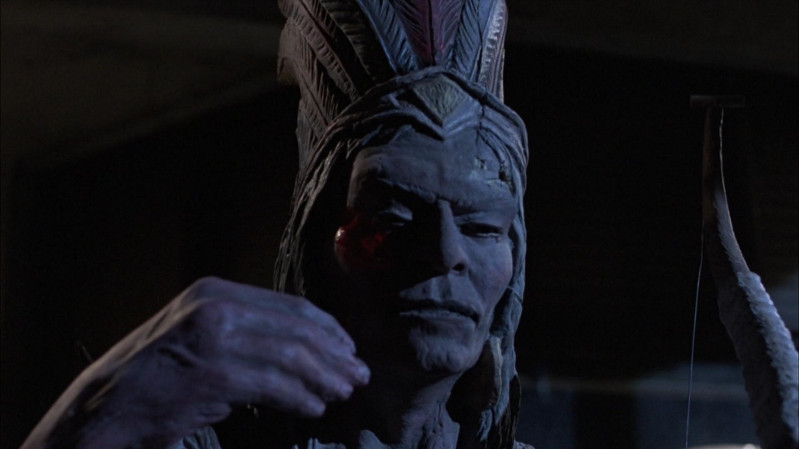
We should be 13 entries deep into the never ending Creepshow franchise. There’s no reason other than the negligence of money men that this never turned into a series we could constantly rely on for anthological horrors. To the big screen what “The Twilight Zone” / “Tales from the Crypt” was on TV. But it wasn’t. And the blame can be laid at the feet of this movie.
It’s not really a bad movie. It’s got its pleasures within. But there is a significant drop in quality between the first entry and this one. It looks a lot cheaper and the movie runs a little too long, despite the shorter run time. It only has three segments and they don’t have the same flair or singularity to them to make the time move quickly. And the drop-off in directorial talent was huge, as Michael Gornick is so clearly not Romero.
That original movie really nailed the look of old EC comics of King’s and Romero’s youth. This kinda doesn’t. It tries, but just feels like a cheap knockoff. The shorts are King shorts and they got that feel to them, but are executed just short of really getting that voice down pat. The best short of the movie is “The Raft,” but even that just lacks a special something.
The acting isn’t as attuned to the tonal frequency as the film’s performances were. But it’s gotta be said that the movie is still a fun watch despite the drop-off. The wooden Indian short runs way too long, but just goes so goofy that you can’t hate it. The unkillable hitchhiker short is funny. Just the repetition kills. Even if the ending kinda tries for a twist that pulls the rug from under you, but it just ends up confusing.
Still, you could do much worse. Sadly, the cheapness of the producers hamfisted this movie and did it no favors. Even the unofficial sequel, “Tales from the Darkside” couldn’t right the ship completely. And the movie titled “Creepshow 3” is not actually a sequel in any way aside from the title. One day, maybe someone can do something with this. But we can be grateful that we got a masterpiece in the original and then a decent late-night watch in this sequel.
18. The Running Man (1987)
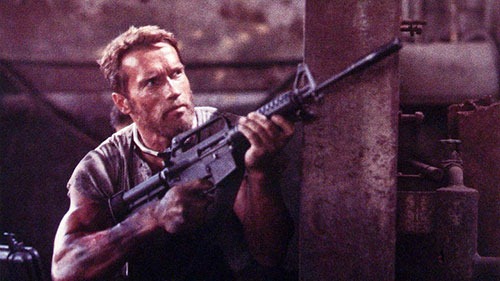
Outside of the premise about a game show where contestants are hunted in a mass-produced Most Dangerous Game, almost nothing about this movie relates to anything in the book.
The book is a stark and sober and super depressing tale of a desperate man taking a huge risk to make money for his family is turned into a cartoon-ish satire about 80’s Hollywood culture. Arnold Schwarzenegger takes on the role of an everyman who is no longer an everyman but is a super noble superhero who is thrust into the limelight and takes the opportunity to take on the man.
This is a supremely cheesy movie. But holy crap is it fun as hell. And honestly, it is as prescient in its satire as the book was. It’s just so over the top and loud and colorful about it. This is so completely an Schwarzenegger vehicle in execution that its connection to King’s work is tenuous at best, so the voice is completely lost.
But where it loses that voice, it more than makes up for it in sheer originality. So that mix isn’t completely well done, but who cares? Richard Dawson takes a break from the “Family Feud” life to deliver a really great villainous performance as the evil game show host who represents the worst aspects of celebrity-driven culture, a performance that is so clearly influenced by Dawson’s life in the industry.
Looking down the rest of this list, this is the last most purely fun entry based on King’s work until the number one spot. Everything else is kinda heavy, which marks most of King’s work. Which may be a big problem with all the weaker ones, and it’s that they don’t get the weight of the narratives right so they end up being campy as hell. This one at least knows straight up that it’s not going for the book, so it just goes completely silly. It works. But hoo boy is it silly.
17. Secret Window (2004)
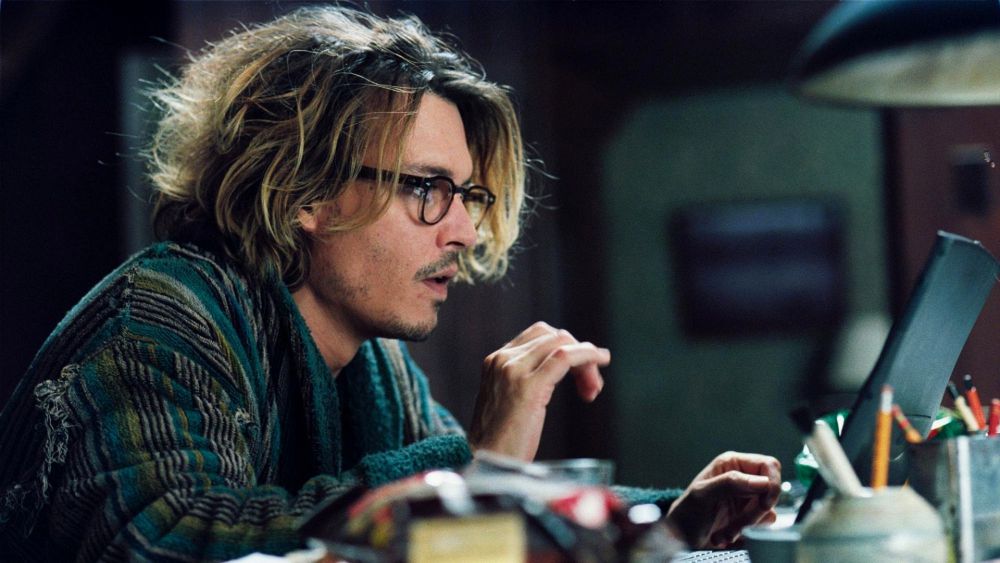
Right toward the end of the period in time when Johnny Depp could make good movies, we got this really solid thriller that rests entirely on Depp. We have to buy him as a low-key writer and that he could be a desperate dude haunted by a vindictive John Turturro, but we also have to believe the twist that he’s actually the mad killer.
There’s a little bit of cheating to keep the twist safe by the end, where it delves a bit into trite horror movie mechanics. But the movie preceding it works so well and gets the tension going really well.
The filmmaking is really confident and manages to keep your attention the whole time despite the limited scope of the story. And it’s simultaneously aged badly and well at the same time, as it’s kind of hard to watch Depp anymore, knowing he’s become such a dead-eyed shell of himself, but also kind of timeless now that we know he too is a raving lunatic that would kill his wife if he had the chance.
16. 1922 (2017)
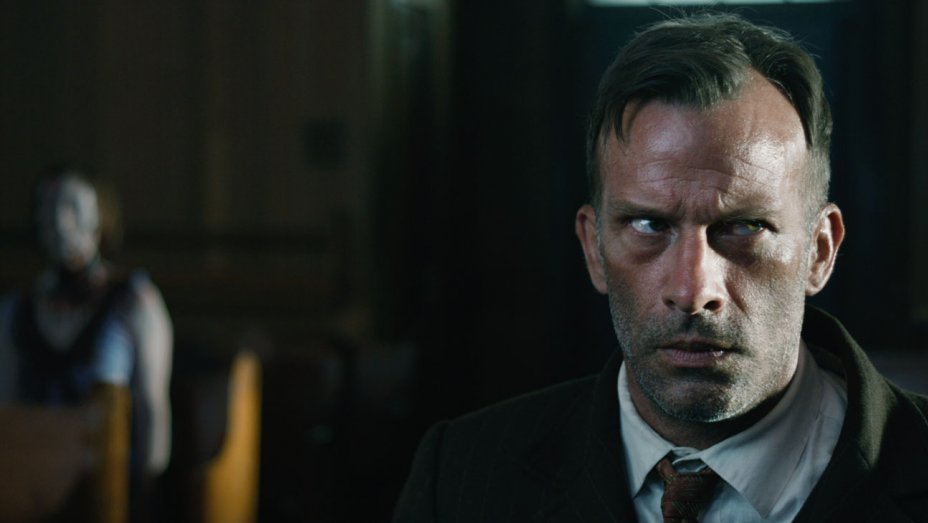
This is one of the handful of super successful adaptations of King’s work to come out in 2017 that helped cement the King resurgence in full swing. One of the few Netflix originals that is actually good and not some hate-watch nonsense, it is based on a more recent short story that plays like the King version of “The Tell-Tale Heart.”
Thomas Jane reminds us why he is a worthwhile talent when he’s awake in this one, as he disappears into a role that could best be described as Tom Hardy playing Tim Blake Nelson. Just this marble-mouthed Southern loser who is so poisoned to his lot in life that he blames his wife for all his ills, and then turns his son onto his side to help kill her and take her massive inheritance for themselves.
It’s honestly a movie so accidentally attuned to our time where toxic masculinity has become a political ideology and an idea being tackled in public. Where men are being revealed to be the unbearable butt babies that they are, who lash out in violent ways toward women when life doesn’t work out for them.
This is a really solid movie that is probably going to have some legs on it. The tone is crushing, but it has to be. This is a dark story that is about the evil in men’s hearts and how crushing the world can be. The visuals really transport us to this time period and help get us invested in the drama, as it is a movie very much indebted to the time, because the movie is about farming crimes, as well as a murder that is insanely messy and half-baked at best.
This is very much a movie about the 1920s, yet also that specificity lends it a universality to it that makes the movie successful. Hell, I’ve might have just talked myself into liking this more than a few more entries ahead of it. Oh well, better to stick with it here for now. This movie rocks and represents a high point for Netflix movies and a good sign for how good things can be with King, since this isn’t even close to the best King property in 2017.
15. The Dark Half (1993)
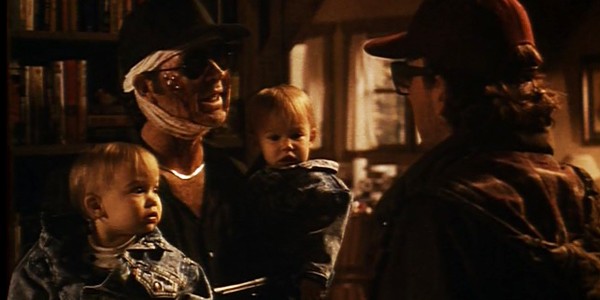
We should have been blessed with more Romero adaptations of King’s work, as the two he’s tackled have been really strong. This is the weakest of the two, if only because it is a movie that is a little too reliant on a metatextual framework to overcome prior adaptations.
It’s based on a book that was King tackling his own legacy and his fandom and his own darkness with regards to his writing. Also, it regards the weird little experiment he did in the late 80s where he had a pen name to write darker and more trashy novels as a way to see if his stories would sell without his name attached.
It’s a high concept movie that doesn’t completely overcome the weight of its premise, but Romero comes close to making it all work. Some of the biggest issues with the movie is the climax that relies way too heavily on really bad effects work, and a resolution that is a bit too convoluted and muddy to completely land. But the movie beforehand is great.
Timothy Hutton does great work in the dual roles, conveying the dichotomy of the creative soul and the darkness within. Michael Rooker gives a great performance in a rare good guy role. There are some great set pieces within that use the narrative hook well.
Romero’s filmmaking is very strong here, the rare time he had a decent budget to helm a picture. He really understood how to get the King voice onto the screen while still retaining his own authorial voice. Knowing how many times he tried to get King’s work on screen only to be reamed out by the money men is just sad. We could have been blessed with more King and more Romero. This is when we hit the money stretch where you can bet your bottom dollar that the movies henceforth are really worth watching in a big way.
14. 1408 (2007)

This is a complete 180 from the first movie on this list that John Cusack showed up in. Whereas that movie was a complete failure on every level with a Cusack that had checked out as quickly as his paycheck cleared, this movie has Cusack invested. It also had Samuel L. Jackson showing up in a more memorable and worthy turn, giving him the very Sam Jackson line, “It’s an evil fucking room.”
What follows is a well-made riff on stuff that was done in “The Shining” but on a much smaller scale, with a man reckoning with his past in an evil room that drives him to the brink, making him confront his grief. Although it’s a more outwardly trippy entry than “The Shining,” it ends on a much less bleak note.
It’s a strong character piece that fits very well into the King oeuvre while building on a short story. It’s not completely like the story, but close enough to considered faithful. What keeps this movie back from other entries above it is that it lacks a clear iconography that launches the other movies into classic status.
13. The Shining (1980)
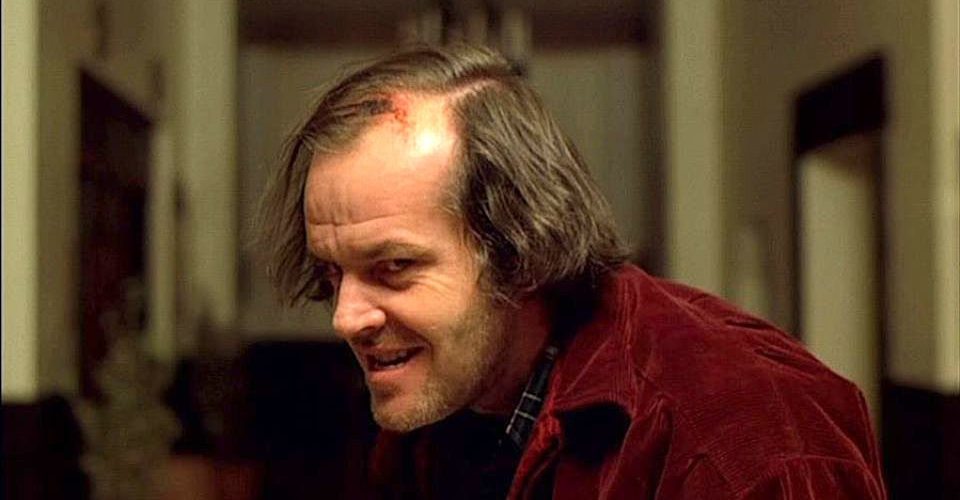
This was the second movie based on King’s work (although “Salem’s Lot” was turned into a TV movie a year prior). De Palma’s work on “Carrie” was classic and super successful and iconic, but Stanley Kubrick taking on the work was immediately greeted with such excitement that it was pretty much predestined to be a classic. And it was.
People love this movie. It is treated like some holy grail of cinema, the scariest movie ever made. But… it really isn’t. The tone of the piece is great and the visual work that Kubrick brings to the piece is as usual very strong. But there’s something missing. It probably starts with how divergent it is from King’s work.
This is very much a different beast than King’s book, a book that was very personal for him. It was a story dealing with his alcoholism in a genre setting, his fear of failing his family due to said addiction. There was a humanity to it that is sorely lacking in Kubrick’s version.
Jack Nicholson is clearly crazy from the beginning, so there’s no real drama in watching him go stir crazy in this place. The movie also tries for ambiguity in the haunting aspect, although it is clearly putting its foot on the supernatural side. So it takes some of the heat off of itself, taking away from Nicholson’s arc. His clearly crazy, there’s nothing else to it, and he is taken in by a supernatural force. And it doesn’t help that his family is so annoying and horribly cast that you want them to die.
Shelley Duvall is next-level bad. She is so grating and shrill in her performance. Sure, Kubrick really drove her to insanity, but it hurts her performance. Her line readings are atrocious. And then there’s the little bastard at the center of it, Danny Torrance. He sucks and is one of the primo examples of how bad kid actors can be. Truly just an empty performance. You want them to die, so watching Jack lose it doesn’t really feel tragic.
It’s just a wonky ass movie that works, despite its narrative issues. There’s a magic to it that pulls you in. It’s a very flawed movie from the jump and one that deliberately tosses out King’s voice. But in the end, the movie is so watchable. Maybe it’s just that Nicholson in this time period was unbeatable. Maybe Kubrick and his dark magic embedded itself onto the film. Either way, like the Overlook Hotel itself, you get sucked in and can’t find your way out.
12. Carrie (1976)

The movie that started it all. If this movie wasn’t as successful as it was, would there be as many King movies after it? Or hell, would King have reached such ubiquitous fame that he was able to garner such attention from Hollywood after? Who knows, but it’s an interesting thought exercise nonetheless.
Lucky for us, the movie was a big hit and a classic of horror cinema. It’s a movie that may trim a lot of the fat from the book, jettisoning the framing device where we read excerpts as such from the aftermath of what happens in the end.
De Palma zeroes in on the blooming teen aspect as well as the religious extremism aspect to deliver a movie that, despite its supernatural premise, is one that hits very close to home. There’s a reality to the emotions within, hidden in plain sight underneath De Palma’s heightened sensibilities. He is one to never go for strict realism and here is no different, very clearly telling us we are watching a movie through the aforementioned supernatural elements and his usual tricks, such as split diopter shots and split-screen trickery.
The performances are definitely a bit larger than life, especially from Piper Laurie as Carrie’s mom. Sissy Spacek anchors the whole thing though, her otherworldly presence and inherent humanity coming together to bring out a human monster, someone pushed so far to the brink that it’s only believable that she would snap in such a big way.
Being that this is early in De Palma’s career, there is an ambition in filmmaking but also a clear sense of things not coming together clearly, a little roughness around the edges that would disappear come “Scarface” time. But there’s no denying the power of this movie and how attuned he was to the story.
Just look at the beginning of the movie in the locker room, where it starts off a bit skeezy, but to a point. He lures you in, thinking this is some horny boy fantasy. But then reality hits – Carrie has her period and the horror arrives. High school is a bitch, especially when you don’t fit in.
11. The Green Mile (1999)
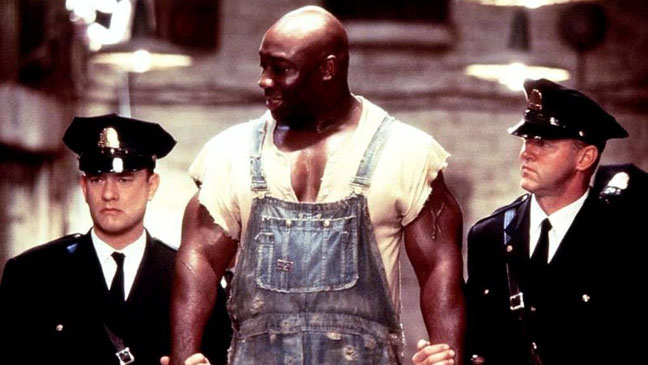
Frank Darabont may be the preeminent adapter of King’s work. He’s gone to bat with the man’s material three times in his big screen career and has knocked it out of the park three times. This is the weakest of the three, and it’s only because it’s a self-indulgent sophomore movie, with Darabont leaning a little too heavily on to the prestige picture bloat.
The movie is almost obnoxiously long. Almost. You can say that there’s plenty of material to cut out and make the movie a little leaner, but the epic run time works fine enough because his filmmaking is pitch perfect and he fills the movie with actors/characters that you just love to hang out with.
This runtime puts us in the characters shoes, the aggressive stillness and boredom of prison life from both the CO’s shoes and those of the prisoners. What it also gets to is the sadness of the entire life in this place. It’s a crushing life. They try to compartmentalize, but it’s hard to when you spend a good chunk of time with these men and then have to roll them on to their death. The only thing that can shake them from their stupor is a typical King element, which is a character with a supernatural ability, ably performed by the late great Michael Clarke Duncan.
This is a movie that shares a lot with Darabont’s first King flick, “The Shawshank Redemption,” but there is a bitter sadness that ends the movie. It’s a movie about the pain of life, about the little mistakes we make when we close our eyes to the injustices around us. Darabont shows us again how attuned he is to King’s writing.
The movie, like Kings work, feels like a story we’re being told by an old friend. Like a classic story we’ve heard all our life. It’s elemental, it’s classic. There’s that blue collar sensibility to it of a hard-worn life on all edges of the frame. This is honestly just a magical movie that may run too long and spend way too much time on a framing device that could have either been cut or recut. But that doesn’t matter. By the time Tom Hanks is walking Duncan down the green mile, your heart is broken. This movie works.